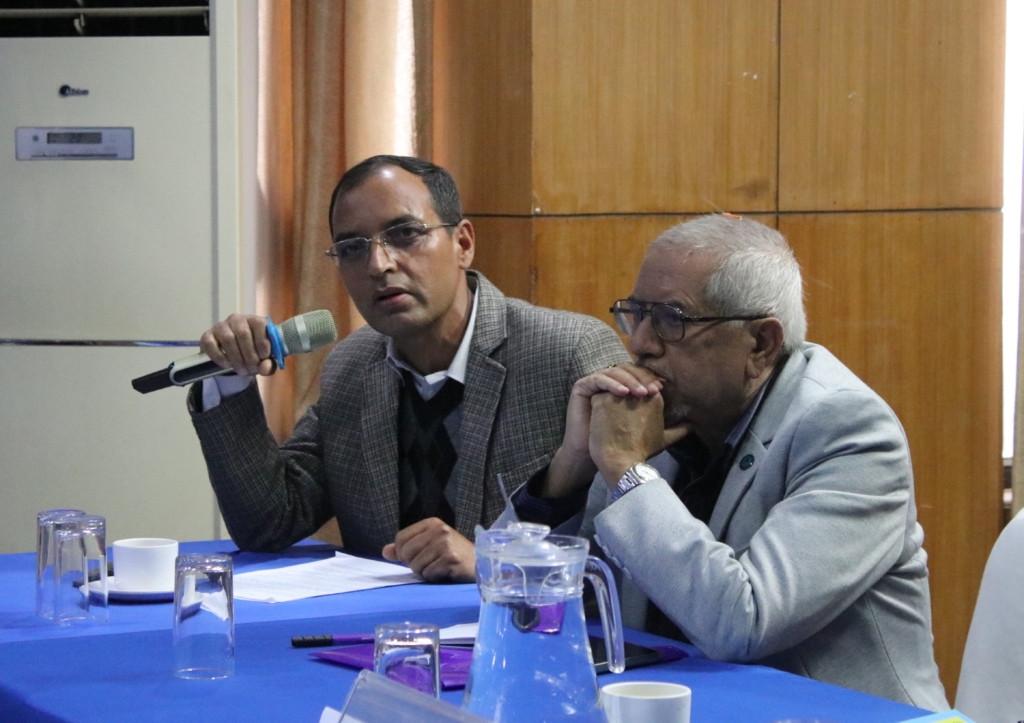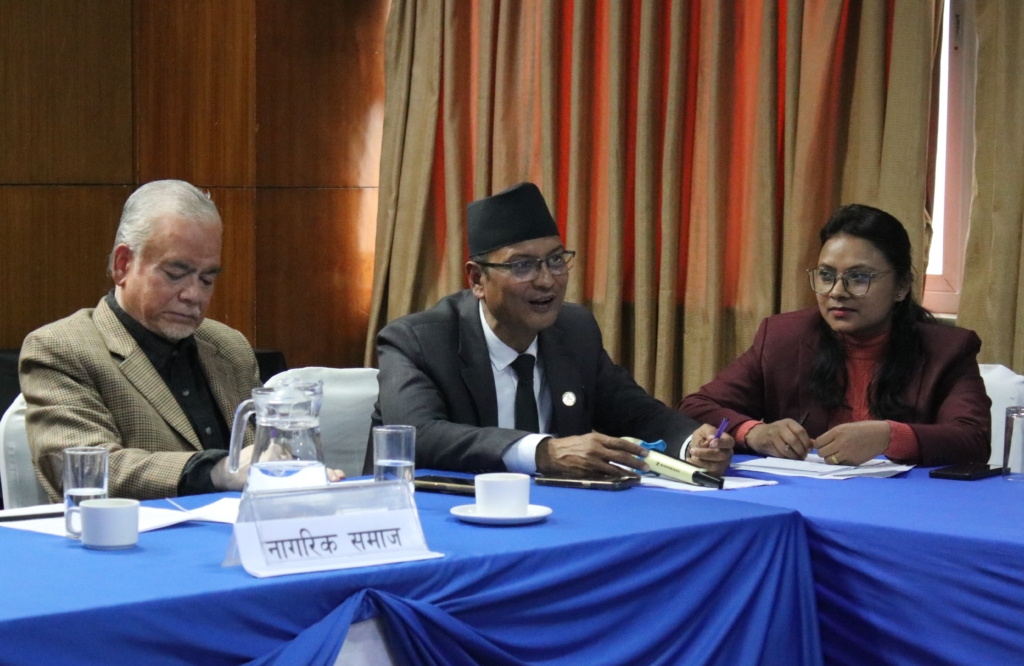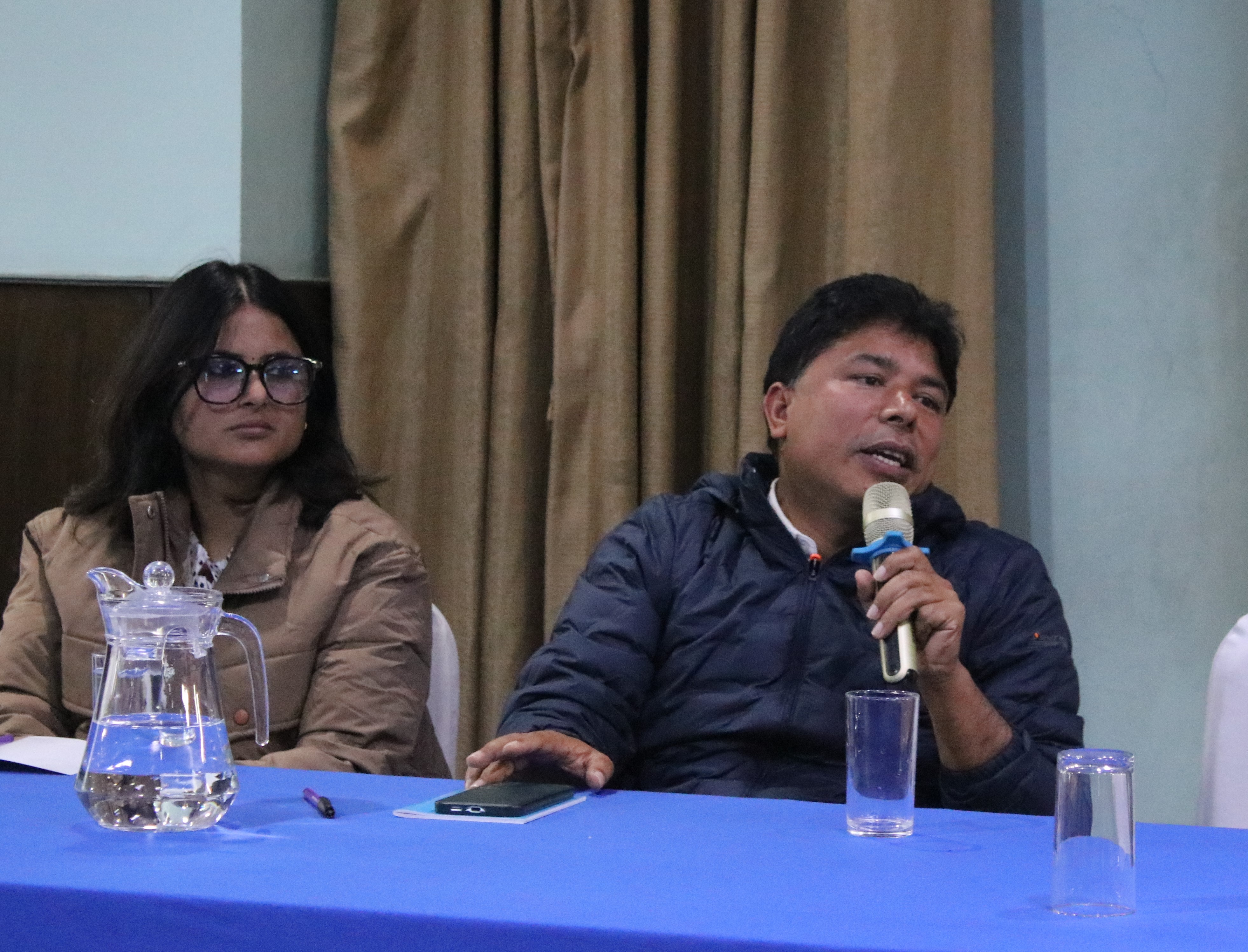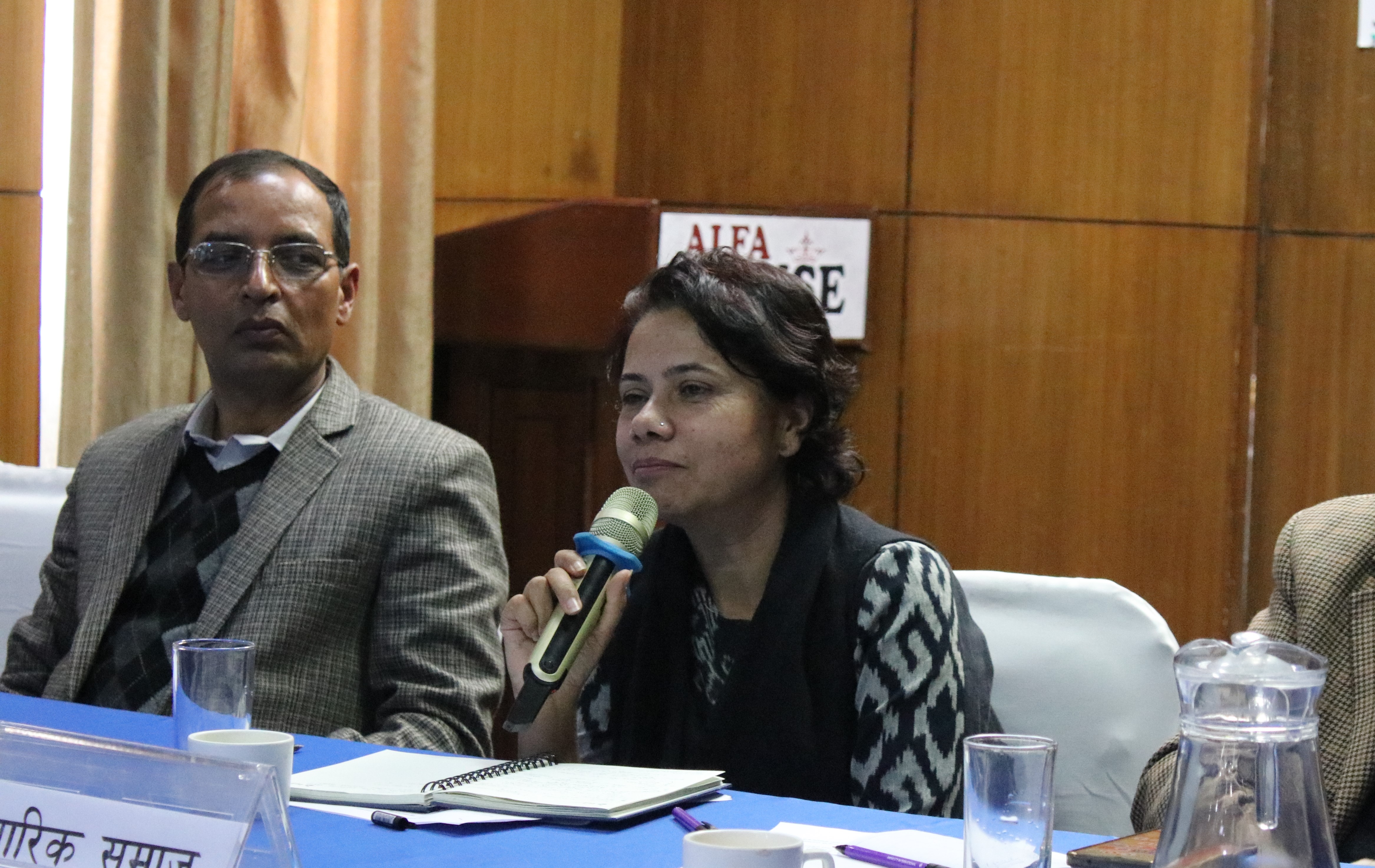On 6 December 2024, Amnesty International Nepal, in collaboration with the Constitutional and Judicial Journalists Forum, organised an interactive program titled Credibility of the Transitional Justice Process in Kathmandu.
The event brought together journalists, conflict victims, civil society members, and activists to discuss the current state of Nepal’s transitional justice system, particularly in the wake of recent developments regarding the Recommendation Committee working for the shortlisting of potential office bearers for the two transitional justice commissions: the Truth and Reconciliation Commission (TRC) and the Commission for the Investigation of Enforced Disappeared Persons (CIEDP).
The program began with a brief overview of the discussion by journalist Kalika Khadka, who is also the chairperson of the Constitutional and Judicial Journalists Forum. Following the introduction, Raju Prasad Chapagain, a human rights and constitutional lawyer, delivered a presentation titled Credible Transitional Justice Process: Experiences, Lessons, and Way Forward.

The presentation covered the challenges and lessons learned from Nepal’s transitional justice process thus far. He stated that despite efforts to establish a credible transitional justice process, many setbacks have been faced, including political interference, delays, and a lack of transparency. In addition, he emphasised the importance of selecting officials for the two justice bodies through a competitive and qualitative process, improving coordination between government levels, and incorporating the voices of victims. He stressed that the process must balance truth, justice, and reparations while addressing the needs of all affected communities, particularly survivors of gender-based violence. Only through these steps, he argued, can transitional justice be resolved in a fair and credible manner.
Following the presentation, a lively discussion ensued. Senior Advocate and former Minister for Law, Justice and Parliamentary Affairs Govinda Sharma Bandi highlighted the central importance of justice to victims. He noted that Nepal’s history has been marked by cycles of structural violence, and laws, including the constitution, have often been written to favour specific interest groups, denying justice to victims. While expressing optimism about the credibility of the recommendation committees that have been formed to nominate officials to the two justice bodies, he pointed out the ongoing lack of a confidence-building process among key stakeholders.

Ram Bhandari, a conflict victim and rights defender, shared his perspective on the issue, noting that the struggle for justice has never been approached as a truly national issue. He lamented the fragmented nature of the victims’ voices, both among civil society groups and across geographic divides, with voices from rural areas often being marginalised. He cautiously expressed optimism about the future but warned that without learning from past mistakes, the path to justice would remain difficult.

Following Bhandari’s comments, Dr. Surya Dhungel, a member of the National Human Rights Commission, discussed the critical juncture Nepal’s transitional justice process finds itself in today. He emphasised that for the process to be fair, it must remain free from political interference.
Providing the perspective of journalists, Ghanshyam Khadka, a journalist with Kantipur Daily, provided insight into how newsrooms perceive the transitional justice process of late. He expressed concern that public interest in the TJ issue is waning, largely due to the influx of young journalists who do not recognise the gravity of the matter. He also shared that the sad reality is that there are only a few journalists in Nepal who remain committed to covering transitional justice and keeping the issue in the public eye.

Srijana Shrestha, chairperson of Conflict Victim Women National Network, shared her disappointment with the process, noting that political pressures and cracks within the system were already visible. Her remarks echoed concerns that the system might once again fail to deliver justice to victims. Sushila Chaudhary, a lawyer and the General Secretary of Conflict Victim Women National Network, also expressed similar concerns.
Dr. Mandira Sharma, Senior International Legal Advisor for the International Commission of Jurists, reflected on the long history of efforts to address transitional justice in Nepal. She acknowledged the progress made but stressed the need for an inclusive and fair justice process moving forward. She particularly emphasised the urgent need for victims and their families to access the truth about what happened during the conflict, questioning why complaints submitted to the Truth and Reconciliation Commission (TRC) have yet to be investigated.

Rukamani Maharjan, an activist and lecturer at Nepal Law Campus, supported Sharma’s call for transparency and accountability. She expressed hope that the new leaders of the transitional justice bodies would finally ensure that victims and their families gain access to truth, justice, and reparations.
Charan Prasain, a former Chairperson of Amnesty International Nepal and a senior human rights defender in Nepal, reflected on the failures of the previous two transitional justice bodies. He urged stakeholders to learn from these past failures to prevent repeating the same mistakes. He emphasised that the protracted nature of the justice process highlights Nepal’s lack of commitment to addressing the issue as a nation, making the need for a successful outcome all the more pressing.
Bringing the discussion to a close, AI Nepal Director Nirajan Thapaliya underscored the critical role journalists play in exposing injustice. He called for continued media support in shedding light on transitional justice issues, stressing that the momentum must be maintained to ensure accountability. Thapaliya also reiterated Amnesty’s reservations regarding the current laws and expressed hope that this opportunity would not be squandered in securing justice for Nepal’s conflict victims.
He added that while the process of these appointments has raised hopes for a new chapter in the long-standing pursuit of justice, concerns about political interference and the slow pace of progress persist. And with the transitional justice process already 18 years in the making, the call for a fair and credible resolution has never been more urgent.


